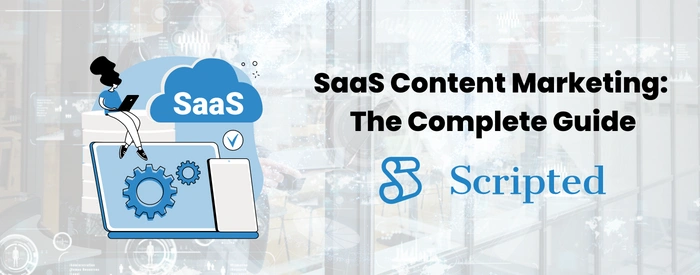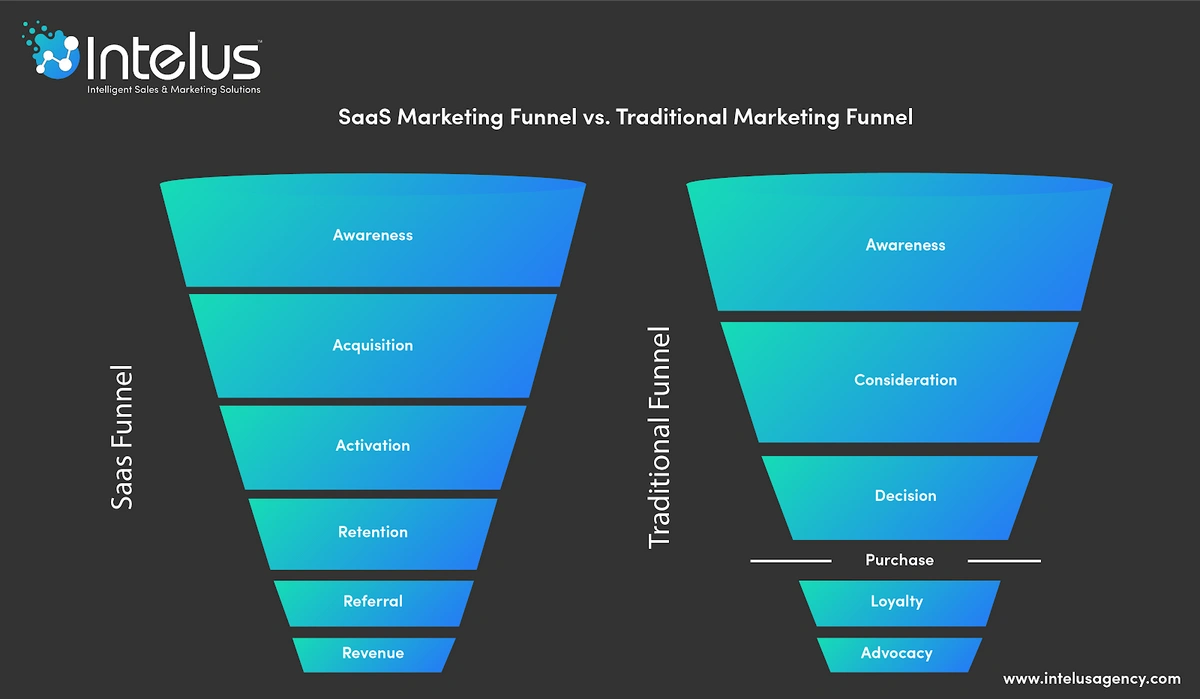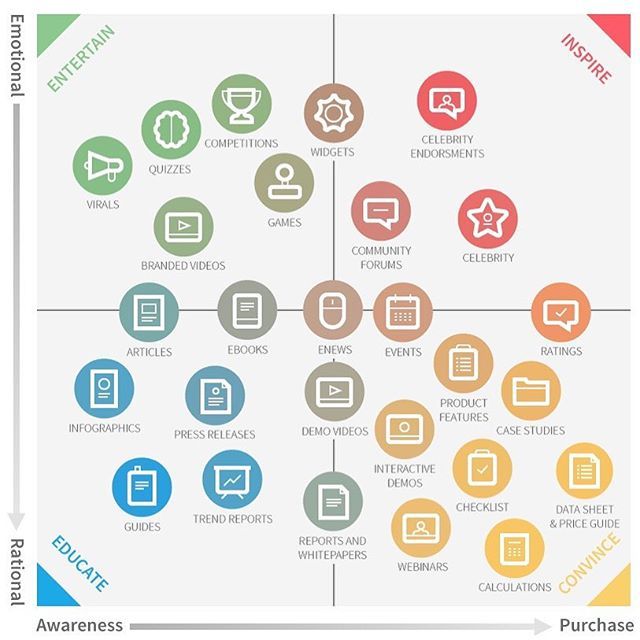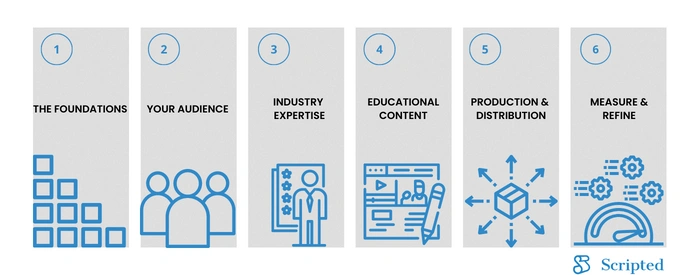- Blog Home
- Industries
- Emily Chang
- The Complete Guide To Saas Content Marketing
The Complete Guide to SaaS Content Marketing

It’s no secret how vital content marketing is in 2023, and many companies worldwide are looking to accelerate their content game. However, content creation must be done differently for your SaaS business. This is because SaaS products are typically more complex than other B2C or B2B products and often require a deeper understanding of the subject and technology involved. Your SaaS content marketing strategy should consider this; facilitating a learning process and acting as an incredible resource for your audience to upgrade their skills.
But how do you achieve this? How do you ensure your content aligns with a knowledgeable audience and covers the numerous factors that make up excellent content? Discovering how to align your content appropriately for your SaaS is tricky, but thankfully, we’ve made things simple again. Here’s everything you need to know for an excellent, highly effective SaaS content strategy.
Why is SaaS Content Special?
Content is essential for most businesses, so why does SaaS content differ from a standard content marketing strategy? Firstly, SaaS products are typically more complex than B2C products and often have an added layer of complexity. This requires significantly more prior knowledge before your customer makes a purchase.
In addition, you’re targeting an audience that likes to self-educate, is well aware of how to run a business, and knows the ins and outs of technology and marketing methods. So your content should reflect this, dive deep into topics, provide genuine value, and show your audience how to do something while subtly suggesting how your software can help.
While you'll need to create great, informative content across a range of niche-specific topics, SaaS products are generally associated with some level of commitment. For example, if your software is exceptionally new and innovative, it may be expensive, or perhaps you have a subscription model. Whatever it is, SaaS purchases require more time and thought than your average online purchase. Instead of a “‘I’ll buy and see what happens” type of decision, a SaaS purchase is a carefully considered purchase passing through several decision-makers.
Why Is Saas Content Important?
Your content is vital to selling SaaS products successfully and paves the way for an informed purchase over many highly informative posts. Many of your ideal customers are business owners who love to self-educate and seek methods of growing and scaling their businesses. If you can help them upgrade their skills through unique 10x content, you are in a formidable position to sell to those people.
As a SaaS business, one of your content marketing goals should be becoming a go-to source for niche-specific information. If you can establish yourself as the best in the industry for informative content, you'll have future customers searching your brand name to find specific information. Pretty cool, right? Becoming such an authority in a competitive and valuable niche such as Fintech or Legaltech can be highly lucrative, with huge ROI, by building trust, loyalty, and reciprocity.
Helping your customers upgrade their skills to grow their business builds customer loyalty over time, making it all the more likely they will buy your software. Instead of focusing on a wide range of related keywords, the content you create should focus on your customer's pain points, helping them reach the next level. Although you can suggest at appropriate stages how your software can help them achieve their goals, your content doesn't all have to be directly linked to your software.
SaaS Content Stats - Crunching the Numbers
Now we know why SaaS content is so unique and what it does for your business, what do the numbers say? We love crunching numbers at Scripted, so we scoured the web to unearth the most intriguing and thought-provoking SaaS content marketing statistics. Here’s what we found:
-
The average number of Saas applications used by companies doubled between 2015 and 2017.
-
23% of SaaS blogs receive fewer than 500 visitors per month!
-
Only 15% of the world's largest SaaS businesses don't have a blog as part of their marketing strategy.
-
93% of marketers view content as a very important digital business asset.
-
75% of SaaS companies expect to increase their content marketing budgets in 2022.
-
65% of SaaS companies have a developed or advanced content marketing strategy.
Impressive stats showing all the largest Saas companies take content creation seriously. Some highly encouraging and motivating numbers for kickstarting a SaaS content plan, right? If you want your SaaS to become one of these companies, it's time to think content! So how do you create a superb SaaS content strategy?
Creating A Successful SaaS Content Strategy (Step-by-Step Guide)
-
The Foundations
If you have a content strategy, you'll know firsthand how many elements go into great content. You'll have also experienced all stresses that come with creating it. Stresses made worse when you get little to no return for your efforts. Creating an effective SaaS content strategy begins at the foundations, including:
-
Your product
-
Your USP
-
Brand story
-
Value proposition
These should be prevalent through your website and broader digital presence. Firstly you must be super clear on your product. SaaS products are advanced technologies, often with unique complexities; you, the marketer, must know all the ins and outs and, most importantly, what it can do for users. Your USP should clearly state why a business should choose your software over another company offering a similar product.
Your value proposition is the problem you'll solve if a prospect buys from you. Combined with a well-designed website, concise copy, and excellent content, these factors are a great recipe for SaaS content success. All of this should be clear across all of your digital marketing assets.
How to Implement
To implement these factors into your Saas company, write down detailed descriptions of your product/services, from the basics to the more detailed technicalities. In addition, document your unique selling proposition, value proposition and unique brand story. By having this in writing, you allow anyone involved in the content creation proccess to use it as guidelines and refer back–helping you to closely align your content to the bigger picture.
-
Your Audience
Successful SaaS content requires a super-defined customer persona and a great understanding of your audience. Creating customer personas allows you to get super specific with your content, with informative content that touches on their hopes, dreams, goals, and emotions.
While you likely know your customers inside out, the SaaS customer journey requires more steps. Several people are often involved with purchasing, from marketers to executives and owners. So you'll need personas for all of these. Essentially you want to define a clear audience for anyone interacting with any part of your product, from pre-purchase decisions to implementation and use. Showcasing your products with content marketing targeted toward all these people is an excellent method of increasing content ROI.
So how do you gather all of this information? You can interview all the different types of customers you have to see which questions they have, what might prevent them from purchasing, and how they would use your software in real life. This research process allows you to cover all bases and create content based on real-life data.
You can also work with customer-facing teams within your company and participate in your niche online community by reading comments and watching videos to see what people are asking and are interested in.
How to Implement
Conduct interviews with customers, and arrange regular meetings with customer-facing team members. Essentially, do anything you can to collect data on your most valuable customers and continue to refine and streamline your customer personas.
-
Industry Expertise
Another critical step is establishing industry expertise. Within your company, you may have several skilled professional industry experts. And this expertise is one of the cornerstones of SaaS content marketing. In addition to your company employees' wealth of knowledge, there are many other methods to gather industry expert information.
Conducting customer research and interviews, subscribe to top SaaS newsletters from the largest companies in your niche. You can learn and develop content around this, building on points into your blog post and content. You should learn from your company's industry experts and most knowledgeable persons, then build content around this.
How to Implement
Consistently read content and look to niche authorities for thought leadership content. Perform regular customer interviews and look at industry trends across social media, niche blogs and video channels. Take note of content that's performing well, and there you have it, your next awesome content ideas...
-
Deep Educational Content
As a SaaS content marketer, you must adopt a highly educational approach to content. It is not simply a problem/solution approach but a deep dive into the advanced topics that will help your audience level up their career. We're sorry, but no one cares about your specialized software's ins and outs; they only care about what it’ll do for their business.
That said, SaaS marketing requires product-specific content to help users understand how it can help them. But most of your content game should focus on educational resources and diving deep into particular topics, helping your audience achieve something. This also allows you to become an authoritative, highly knowledgeable go-to source in your niche.
How to Implement
Start by ensuring everyone involved with content creation knows your products inside out. In addition, the topic you're creating content around will likely require industry expertise. Whether this is someone in-house or you're looking to outsource the writing, the writer must be a subject-matter expert. If you are planning to outsource, provide learning resources, informational material and, if necessary, arrange a meeting between the writer and industry expert to relay key subject information.
-
Develop A Production & Distribution Procedure
Once you've developed your epic educational content, creating a production and distribution strategy is an often overlooked aspect of content marketing. However, it will make your life as a SaaS business owner easier in the long run. Here you can decide what content type to post, for example, a blog article or gated content, where it will go, and how it can be re-purposed.
Create a schedule - Without a plan to create content around, it is next to impossible to quality content consistently. Your schedule should include when and where content should be posted, what content will go out, relevant hashtags, and related content.
Hire a content creator - Staying on top of all your content is tricky alongside running your business. You can leverage Scripted’s large base of expert writers so you can concentrate on your business, safe in the knowledge you've got quality content covered.
Distribution channels - Establishing your most lucrative posting channels is critical to getting the most out of content; find where your audience hangs out online and prioritize sharing content through these channels.
Automation tools - Many automation tools can help you keep on top of sharing content and make your life much easier.
Repurposing - Any content you share can be repurposed and shared across many other channels. This is an incredibly effective way of maximizing content creation. For example, one blog post can turn into numerous social posts, infographics, and video content.
How to Implement
Create a content calendar, including when and where the content will be posted, who's involved with each step as well as re-purposing tasks. However you do it, ensure you have a clear, documented schedule to stick to.
-
Measure Performance & Refine
There is no point in creating excellent content and putting resources into it, only not to bother measuring it. If you're not measuring content, how do you know if it’s successful? A scary stat is that most businesses with a content strategy aren’t documented and not measured. What's the point in creating content if you don’t know what it's doing for your business?
You can use many ways to measure content success, from impressions, clicks, engagement, and conversions. These are all measures by which you can tell if your content is successful. This allows you to streamline your content creation processes and create a better all-around content experience.
How to Implement
Like with your content schedule, you must document the metrics by which you measure content. Establish the most important factors to measure content success, and note the data points you want to collect on your audience. For example, this could be clicks, impressions, bounce rate or conversions. Then look to tools such as Google Search Console and Analytics to gather data on your audience and how they interact with your content.
SaaS Content Marketing - Final Words
With so many factors making up successful content marketing, especially for Saas businesses, it's tricky to know where to start. And directing time, effort, and resources into a content marketing strategy that may not be successful is risky, not to mention how time-consuming creating great content is alongside running your business.
However, what if you could develop a strategy with bulletproof foundations, align it for a SaaS audience, and create content that dives deep into niche-specific topics while aligning with your business's goals? If you want to take your enterprise and content marketing game to the next level, contact Scripted and tap into our large pool of industry-expert writers.




